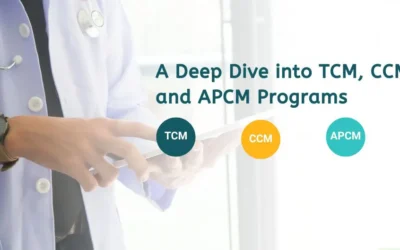
The Evolving Future of Chronic Care Management
Embracing a Hybrid Care Approach
Telehealth along with RPM usage reached unprecedented levels throughout the COVID-19 pandemic. After the pandemic, patients and their families expect virtual healthcare options and alternatives to ordinary in-person care. Telehealth has become popular because it provides users with convenient access to clinicians and minimizes their exposure to potential risks through remote care solutions. The demand for virtual healthcare services now involves patients from all age groups because older adults use telehealth to decrease their healthcare provider interactions and avoid transportation challenges. The shift in virtual healthcare discourse has enabled patient empowerment in their healthcare decisions, while many patients will select hybrid care delivery in the future.
Enhanced Access to Telehealth & Remote Patient Monitoring
The practical applications of Telehealth and RPM have expanded beyond specific home health service domains. Healthcare organizations continue to identify expanded uses and advantages of these technologies in their operations. Telehealth services now connect a wide range of patients through multiple healthcare professionals. The application of telehealth and RPM practices extends beyond nursing care and includes physical therapy, occupational therapy, and social work services. The adoption of telehealth received additional momentum from the ability to submit bills for virtual patient encounters.
Telehealth and RPM systems will establish the future of chronic care management through national adoption. Establishing a detailed virtual care method represents a fundamental requirement for successful organizational operations. The program enables healthcare providers to serve patients who do not meet home health service criteria yet need basic medical care. The Chronic Care Management team at Frederick Health plays a vital role throughout different healthcare system sections because it offers comprehensive patient interaction and engagement services.
Strengthened Collaboration Across the Health System
Chronic care management programs have unlocked only a minor fraction of what they can achieve. Frederick Health demonstrates the numerous chances for patient outreach expansion through system-wide healthcare collaboration. Chronic care management will become more promising through its integration with various healthcare domains through medication reconciliation and other future programs. Such collaboration between healthcare providers results in better patient care and superior treatment results and complete management of long-term illnesses.
Chronic care management will evolve alongside the constant changes in telehealth and RPM technologies. COVID-19 fast-tracked virtual healthcare service requirements while patients from every age group started to adopt this digital healthcare approach. The healthcare industry transformed because telehealth expanded into multiple patient groups and provider disciplines through physician and provider cooperation. Healthcare organizations must create extensive plans which utilize these technologies and resources to provide quality healthcare services to larger patient populations.
Gen By Gen Health's turn-key CCM/RPM solutions ensure compliance and health literacy – improving patient satisfaction and outcomes, increasing revenue, and decreasing staff workload.
To get in touch call us right now at (908)-864-0098 to learn more about our CCM services or you can also book a 30 min free consultation.
You may also like
The Power of Patient Engagement in Driving Better Outcomes
Using patient engagement strategies requires intentional action, but the benefits are significant. People engaged in their care usually follow care plans, control their chronic health problems well, and stay in touch with their doctors. When you start focusing on...
Advance Primary Care Management (APCM) and Who Can Bill For It
Advanced Primary Care Management (APCM), which started in 2025, is the latest care management program from CMS. Unlike older care management plans, it supports every Medicare beneficiary, irrespective of how many chronic conditions they have. As APCM is just starting,...
A Deep Dive into TCM, CCM, and APCM Programs
Transitional Care Management (TCM) is a service that allows Medicare to pay for help given to a person transitioning from a hospital to their home. TCM strives to prevent patients from being readmitted in the first 30 days after they leave the hospital. At this point,...



